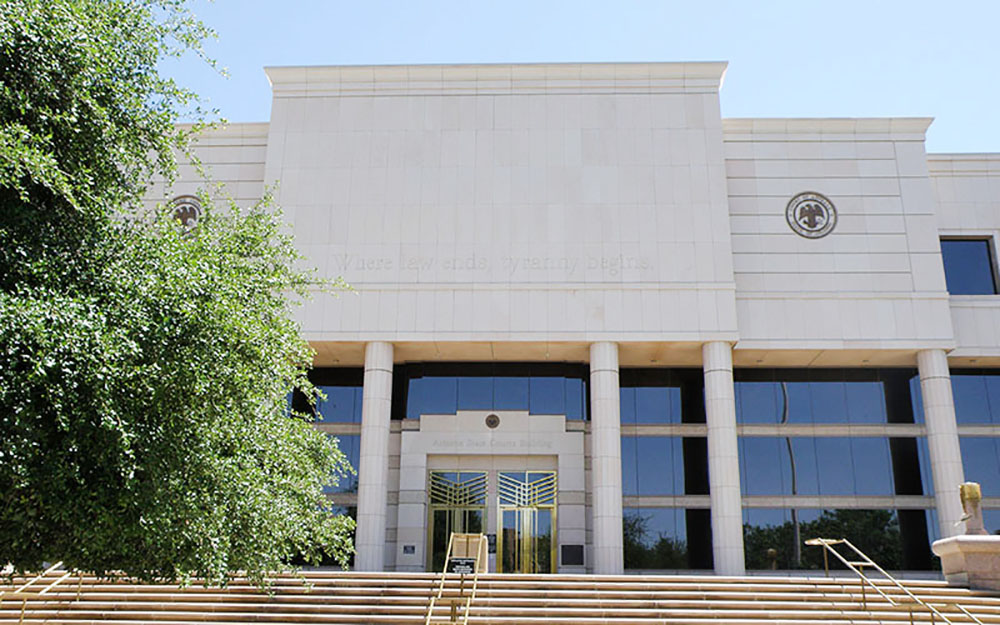Arizona State Courts Building/Flickr
By Mary Jo Pitzl || The Arizona Republic
The massive tax cut lawmakers approved last year and almost any tax issue are not subject to review by voters because such measures provide the money to support state government, the Arizona Supreme Court said in an opinion released Friday.
The lengthy opinion explains why the court last spring blocked a citizen initiative challenging the “flat tax” the Legislature approved in 2021.
The rationale was immediately decried by groups that ran a successful referendum drive to refer the flat tax and its anticipated $2 billion hit to the state budget to this fall’s ballot. By finding that tax referrals are unconstitutional, the court’s ruling erects another barrier for voters to weigh in on the Legislature’s tax policies.
The court reasoned that tax measures provide for the “support and maintenance” of government and therefore under the state Constitution cannot be referred to the ballot for voters to decide. This applies even if the tax would initially decrease state tax collections, as the move to a flat income tax rate of 2.5% is widely expected to do.
Politics: Court battles rage over 3 Arizona voter initiatives
“A revenue measure is exempt from referendum, regardless of the increase or decrease in revenue, provided it is for the support and maintenance of existing departments of the state government and state institutions,” Justice John R. Lopez IV wrote for the court.
Members enjoy a variety of benefits: It’s not just the most recommended roadside assistance, it’s also select DMV services, on-the-spot car battery replacement, identity theft monitoring, and more.
See More
However, the court said voters retain the right to challenge any law that might create a new state agency, even if that law is accompanied by an increase in taxes to support the new operation.
The ruling does not make tax increases impossible, the court said, noting that citizens can make their preferences known by whom they send to the Legislature, or by running initiatives to increase state revenues.
“This court has no voice on the choices our citizens make on the wisdom of tax policy, but we have a duty to ensure that the mechanisms through which they exercise such choices comport with our Constitution,” the opinion states.












